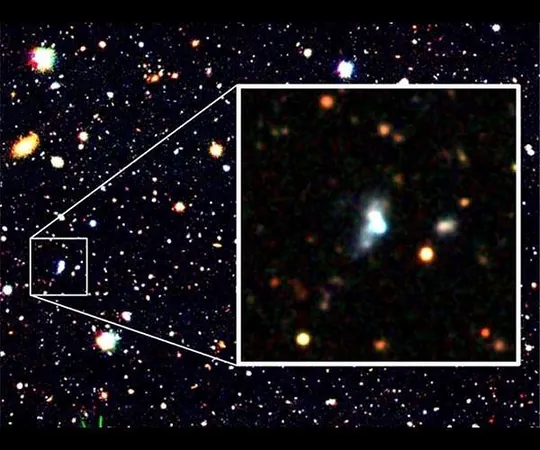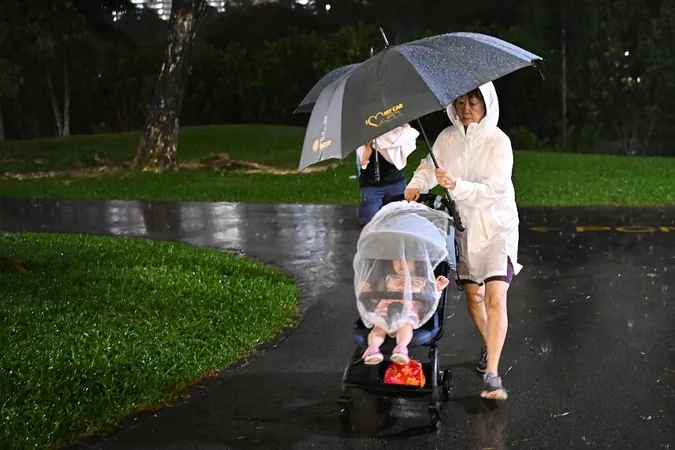
Public Engagement in Machine Learning Transforms Extraterrestrial Exploration
2024-10-09
Author: Rajesh
Introduction
In a groundbreaking move for space exploration, NASA is tapping into the power of public participation in machine learning to enhance its research endeavors beyond Earth. As scientists prepare for intricate missions to other planets, they rely on advanced algorithms built from an array of data sources. These algorithms expedite the analysis of crucial planetary data, paving the way for more efficient and effective exploration missions.
Key Instruments in NASA's Mars Missions
One of the key instruments used by NASA for Mars missions is the mass spectrometer, designed to analyze surface samples and identify organic molecules. By employing machine learning techniques beforehand, NASA can streamline the data processing during the actual missions when time is of the essence.
Open Science Challenges: A New Frontier
In a pioneering initiative in 2022, data scientist Victoria Da Poian from NASA's Goddard Space Flight Center, in collaboration with NASA’s Center of Excellence for Collaborative Innovation, launched two open science challenges. These competitions invited innovators from around the world to analyze chemical data acquired from a mix of commercial instruments and NASA's Sample Analysis at Mars (SAM) testbed—essentially a simulator replicating the Curiosity rover’s equipment. This approach attracted over 1,150 participants, resulting in more than 600 methodologies submitted for evaluating Mars's rock and soil samples.
Impact of the Competitions
“By exploring ideas from those outside our field, we uncover fresh perspectives free from the biases that can accompany conventional scientific training,” Da Poian explained. The two competitions proved not only to be a rich source of innovative solutions but also effective in saving time and costs involved in typical R&D processes. The challenges brought global participants into the fold of NASA’s research ecosystem, and winners walked away with a total of $60,000 in prizes.
2024 Competition: Stay Curious
Building on the success of the previous challenges, Da Poian, in partnership with the Frontier Development Lab, organized a new competition in 2024 titled "Stay Curious: Leveraging Machine Learning to Analyze and Interpret the Measurements of Mars Planetary Instruments." This initiative ran from June to August, producing significant advancements in the field, including techniques for cleaning SAM data from Mars, unifying datasets for enhanced machine learning readiness, and innovative data augmentation methods to maximize the limited data available.
Significance and Future Directions
Da Poian highlighted the significance of these challenges in harnessing lab-derived data to enhance flight data analysis. “The ability to utilize years of laboratory data represents a monumental opportunity for us, and thus far, the outcomes are highly encouraging,” she noted.
Conclusion
This forward-thinking strategy marks a pivotal shift towards leveraging collective intelligence in the realm of space exploration, potentially unlocking new pathways to understanding our neighboring planets. As NASA continues to embrace public engagement, the possibilities for future extraterrestrial research could be boundless. Stay updated on NASA initiatives and uncover more ways to participate in the cosmic journey!

 Brasil (PT)
Brasil (PT)
 Canada (EN)
Canada (EN)
 Chile (ES)
Chile (ES)
 España (ES)
España (ES)
 France (FR)
France (FR)
 Hong Kong (EN)
Hong Kong (EN)
 Italia (IT)
Italia (IT)
 日本 (JA)
日本 (JA)
 Magyarország (HU)
Magyarország (HU)
 Norge (NO)
Norge (NO)
 Polska (PL)
Polska (PL)
 Schweiz (DE)
Schweiz (DE)
 Singapore (EN)
Singapore (EN)
 Sverige (SV)
Sverige (SV)
 Suomi (FI)
Suomi (FI)
 Türkiye (TR)
Türkiye (TR)